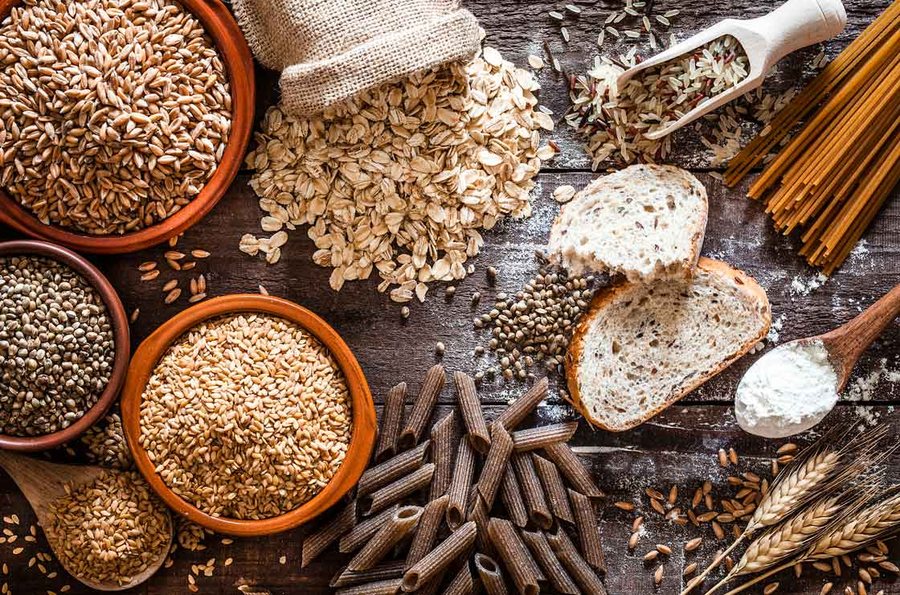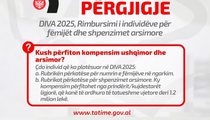Shqiptarët konsumuan 100 milionë euro drithëra - Rritet importi në sasi, blihen me çmim më të lirë

Shqipëria ka rritur ndjeshëm importin e drithërave nga jashtë, duke treguar dhe një tendencë më të lartë të konsumit të tyre.
Referuar të dhënave zyrtare nga Drejtoria e Përgjithshme e Doganave, përgjatë vitit 2024 afro 338 mijë ton drithëra janë blerë nga jashtë kufijve. Nëse do të bëjmë një analizë në 5 vitet e fundit, vihet re se sasia më e lartë e importuar ka qenë në vitin pandemik 2020 për shkak frikës që i kapi qytetarët shqiptarë për mbylljen e kufijve dhe rritjes së kërkesës së menjëhershme sidomos për grurin, vit në të cilin u importuan rreth 365 mijë ton dhe në vitet pasardhëse 2021-2023 ka një rënie progresive, për të kapërcyer sërish në 2024-ën.
Kjo rritje mund të ketë ardhur edhe si pasojë e një sezoni të mbarë turistik gjatë vitit të kaluar çka ka ndikuar në konsum më të lartë.
Sa i takon çmimit të tyre, duket se ka pasur një rënie të theksuar që nga viti 2020. Konkretisht, pavarësisht se volumi i importeve është më i lartë në 2024-ën, ato kapin një vlerë prej 10 miliardë lekësh apo 100 milionë eurosh , e cila është pothuajse e njëjtë me një vit më parë ku importi ishte ndjeshëm më pak dhe po ashtu më e ulët si vlerë në raport me vitet 2021-2022 ku sasia e importuar ishte shumë më pak dhe vlera arrinte ne mesatarisht 120 milionë euro. Por pavarësisht se ky çmim ka qenë më i favorshëm për importuesit, ai nuk është reflektuar tek konsumatorët finalë.
Gruri është edhe një ndër drithërat kryesore të prodhimit të bukës por edhe të nënprodukteve të tjera dhe që preferohet më së shumti nga konsumatorët shqiptarë. Në vendin e dytë renditet mistri. Po ashtu një volum të lartë importesh ka edhe orizi. Këto janë tre drithërat kryesore të blera nga jashtë kufijve.
Ndërsa në sasi dhe vlerë më të ulët, importohet elb, tërshërë, thekër dhe quinoa. Në vitin 2022, ministria e Bujqësisë ndërmori politikën mbështesë për fermerët përmes subvencionimit me 30 mijë lekë për hektarë për kultivimin e grurit, iniciativë që parashikohej të rriste prodhimin ne afro 20 për qind. Por duke qenë se fermerët hasën problematika të mëdha për shitjen e tij, për shkak të kostos më të lartë në raport me produktin e importit, kjo incentivë nuk u vu më në jetë.

Trump “kursen” Kinën - Nuk i vendos tarifa Pekinit për blerjen e naftës ruse
Presidenti i Shteteve të Bashkuara, Donald Trump, deklaroi se për momentin nuk është e nevojshme të shqyrtojë vendosjen e tarifave ndëshkuese ndaj vendeve si......

Nuk arrihet marrëveshje për Ukrainën - Samiti Trump-Putin përfundon pa rezultate konkrete
Samiti i shumëpritur midis Presidentit amerikan Donald Trump dhe atij rus Vladimir Putin nuk solli asnjë marrëveshje për zgjidhjen, apo ndalimin e luftës në......

Importi i automjeteve bie me 7% - Në 7 muajt e parë të vitit u zhdoganuan 57 mijë makina
Në shtatë muajt e parë të vitit janë zhdoganuar rreth 57 mijë automjete në portet e Shqipërisë, duke shënuar një rënie krahasuar me një vit më parë. Sipas të......

Dëmet nga zjarri, miratohen procedurat e vlerësimit e kompensimit - Grupet e vlerësimit ngrihen me urdhër të kryetarëve të bashkive
Miratohen procedurat e vlerësimit dhe të kompensimit të dëmeve të shkaktuar nga zjarret. Lajmin e ka bërë të ditur ministri i mbrojtjes Pirro Vengu me anë të......

Pse bizneset thonë se nuk ka punonjës të kualifikuar? - Muça: Kërkojnë aftësi specifike teknike, ndërsa nuk investojnë për trajnimin e tyre
Bizneset shpesh kërkojnë punonjës me aftësi specifike teknike për nevoja konkrete të tyre, ndërsa nuk investojnë aspak në trajnimin dhe formimin e atyre......

Gati udhëzuesi i ri për strehimin social - Bashkitë, më shumë rol dhe përgjegjësi në planifikimin 5-vjeçar
Ministria Ekonomisë, Kulturës dhe Inovacionit, ka publikuar udhëzuesin e ri, që ka në fokus hartimin e planeve të reja 5-vjeçare të cilat janë të lidhura me......

Rrjet i ri elektrik në zonat malore - Nënstacion në Tamarë, OSSH hap tenderët me fond limit 770 mln lekë
Me një fond total limit 770 mln lekë, Operatori i Sistemit të Shpërndarjes ka hapur dy tenderë për ndërtimin e linjave të reja elektrike dhe përmirësimin e......

Mbi 3.3 miliardë euro të shpenzuara në 6 muaj - Si u shpërndanë paratë? Pensionet marrin pjesën më të madhe, mjedisi në fund
Shpenzimet totale të buxhetit të shtetit për gjysmën e parë të vitit regjistrohen në afro 333 miliardë lekë apo afro 3.33 miliardë euro. Në raport me vitin e......

















